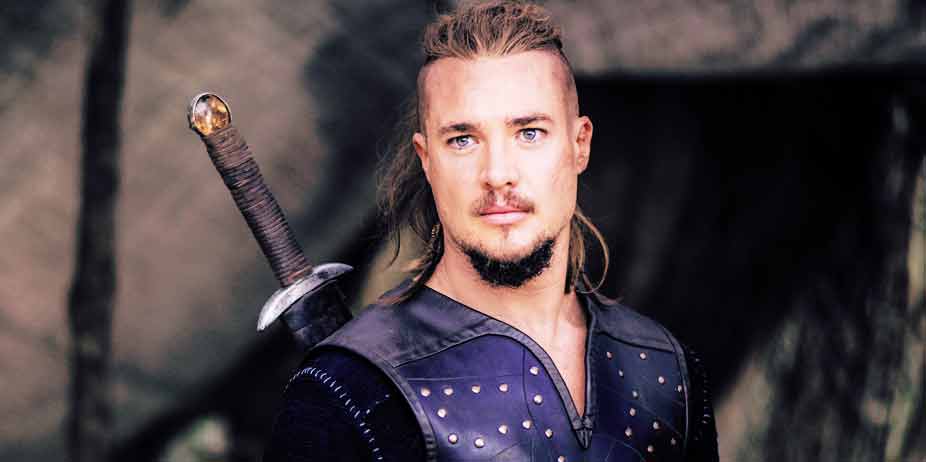 The
Last Kingdom, Season Three (2018)
The
Last Kingdom, Season Three (2018)
After two seasons of complex plots, Netflix's continuation hits the ground running and never looks back. It's a powerhouse of action, character development, and emotion from start to finish.
The newly dubbed England lies in turmoil. King Alfred (David Dawson) fears the end is near. His health is failing, and he knows not who he can trust to guard his son, Edward. The Danes press him on either side, eager to celebrate his death and swoop in to defeat and conquer his kingdom. His daughter struggles to maintain control in her bitter marriage to a Mercian lord. His faithful priest, Beocca (Ian Hart) urges him to turn once more to the Dane warrior, Uhtred (Alexander Dreymon), but Alfred cannot trust the impulsive youth.
Uhtred is soon in enough trouble of his own, when he crosses a Dane adversary only for the man's pagan witch-wife to curse him. Until he gets his hands on her, he cannot remove the curse. And it soon brings severe consequences, when his actions set him against Alfred. On the run for his life, banished and wanted for threatening the king, Uhtred has no choice but to turn to his old allies for safety. He soon finds, however, that with Prince Aethelwold (Harry McEntire) scheming with the Danes to size Alfred's throne, he must choose between self-interest and a greater cause... for England.
I have always loved the premise of this show and its characters. Its strength lies in the epic battle between the philosophical, cool-headed Alfred and the passionate, short-sighted Uhtred. Season two was terrific in its love story but left these two formidable opponents behind. Netflix does not make that mistake. It focuses just as much on Alfred and his grapple with impending death as on Uhtred and his witch-hunt. It continues to develop Beocca. It shifts Alfred's wife into a villainous role, but also tells us what motivates her decisions. It continues the plot threads from former seasons but never loses focus on what this season is actually about; and the result is a compelling ten hours of television that brought me to tears at least twice. It's more about politics and relationships than the tawdriness of former seasons (almost no sex in sight this time around, either... the plot has no time for it!).
It never shies away from the horrors of history, but it also carries us to inevitable conclusions in a believable way, entwining actual historical events with fictional subplots and motives. As a history buff, most movies and television shows fail to impress me, but this season did. This is how you write historical fiction -- with strength, focus, determination, and a ripping good yarn. Whether this ends the series for good or it continues on for another season doesn't matter. It kept me riveted. It brought closure to certain characters. It ended others in horrific ways. It shows the pagan beliefs of the time, while being respectful of Alfred's Catholicism (and is far less anti-Christian than the first two seasons). If you like the time period, it's quality entertainment.
Sexual Content:
A clothed sex scene in the foreground; a man knocks on a
door and a naked woman darts away from his line of sight (brief). Lots of sexual
references (talk about "humping" women).
Language:
Common vulgarities. Uses of ass, sh*t, cock, curses, etc.
Several abuses of Jesus' name.
Violence:
Lots. Bloody. Arrows skew men. Knives slash them open.
Swords behead them and slit throats. Pikes burst through their chests. Women and
children die, too. A woman kills herself before a fire can burn her alive. A man
drowns a woman. Lots of blood sharing for pagan rituals. A woman strangles a man
to death.
Other:
Pagan blood magic, references to life after death, and
curses placed on other people.
